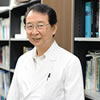Sleep and Wakefulness– Programmed Research
| Research Subject | A02-4 Development of New Strategies to Regulate Sleep/Wakefulness in a Hyper-stressful Environment such as a Spacecraft |
|---|---|
| Research Group Leader |

|
| Research Group Members |
|
| Research Collaborator(s) |
|
Sleep Problems in the International Space Station (ISS) and Stressful Modern Society on Earth
Astronauts suffer from a highly stressful environment like extremely short day-night cycles and living in a confined narrow space at the International Space Station (ISS). Many of them develop sleep disorders, which have to be addressed urgently. The situation in the ISS is not only limited to astronauts in distant Outer Space, but also applicable to many people here on Earth as they live in highly stressful, around-the-clock environments and suffer from a homeostatic imbalance of sleep. It has been reported that about 10% of the labor force is engaged in night shift or shift work, and 20 to 30% of those complain about maladaptation in sleep. Moreover, 30% of the elderly suffer from insomnia, which is a serious problem in aging society. However, an accurate method of diagnosing sleep disorders with a high-throughput is not available, and, until recently, drugs for insomnia were limited to GABA receptor agonists, and there were few options to treat sleep disorders.
Research planWe will develop a new automated method of sleep diagnosis that realizes accurate in-home measurements, and evaluate a new drug for insomnia by clinical research. Furthermore, in collaboration with other groups, we will validate the diagnostic and treatment methods of sleep disorders in the isolation and confinement facility in JAXA. We aim to provide solutions to sleep-related problems on the ISS as well as for the stressful modern society on Earth.

